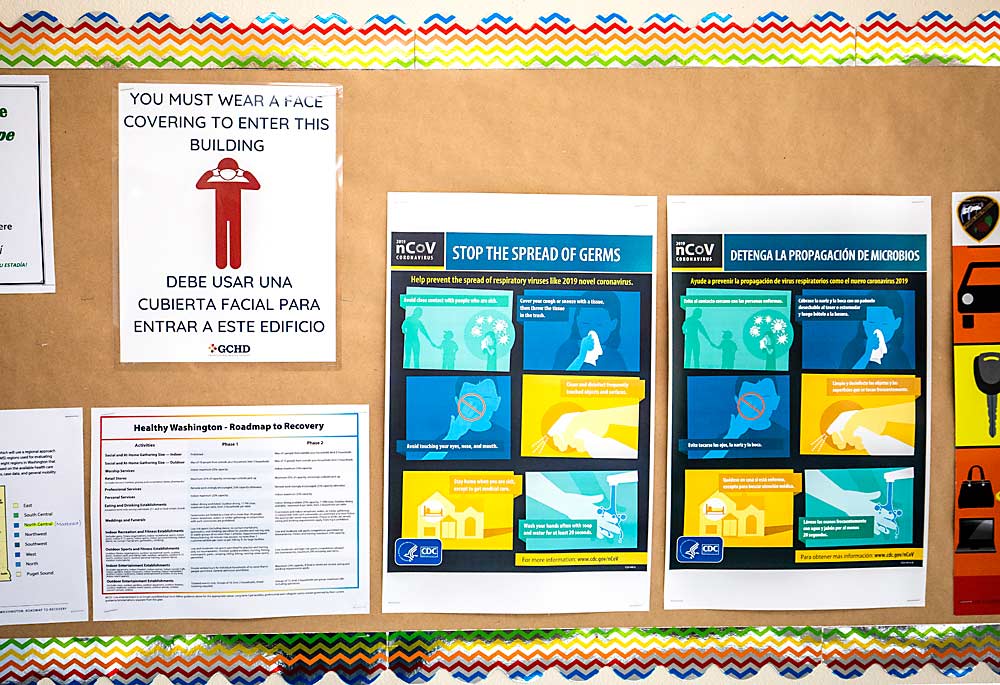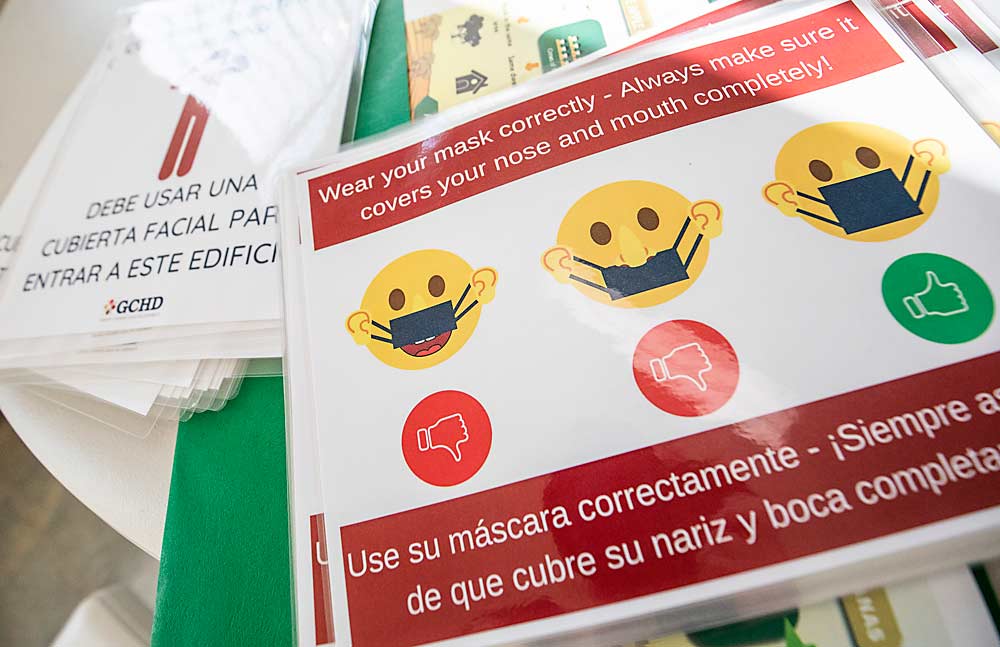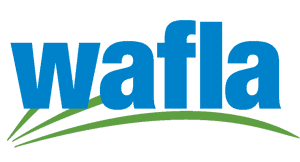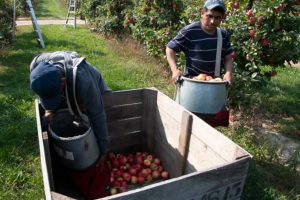
Though vaccines have brought some hope, the coronavirus pandemic remains a threat to communities across the United States. That means temporary rules and restrictions designed to protect farm employees from the disease that has killed more than 500,000 Americans alone will continue for the 2021 season.
Here’s a state-by-state look at some of the agricultural rules specific to the coronavirus, with the dates they were set to expire at the time this issue of Good Fruit Grower went to press.
Washington
Washington will continue to limit the use of bunk beds in temporary worker housing units to those who live, work and travel in cohorts — or group shelters — of 15 or fewer people.
The state Department of Health and state Department of Labor and Industries imposed that emergency workplace rule, among others, in May last year and has extended the regulations twice, most recently in January with a few modifications. They are scheduled to last until May 8. Farmworker housing operators are required to:
—Set up housing to allow 6 feet of social distancing, even if it means adding bathrooms or kitchens.
—Use HVAC system filters with a Minimum Efficiency Reporting Value, or MERV, of 13.
—Pay for twice daily visits from a licensed health care professional for employees with symptoms or positive test results.
—Ensure occupants in isolation are no more than 20 minutes from a medical facility with advanced life support emergency services and one hour away from a ventilator.
Two farm employer groups have sued the state of Washington, complaining that the rules don’t take into account the rollout of vaccines, among other things.
Read more at: coronavirus.wa.gov/information-for/business/agricultural-worker-safety.

Oregon
Oregon does not allow farmworkers to be housed in bunk beds unless the workers are related. The housing-related emergency rules were extended by Gov. Kate Brown in November 2020 to last through April 30 this year.
The temporary farmworker housing regulations also mandate that owners or operators appoint a social distancing officer from among the residents and isolate workers with COVID-19. Field sanitation and transportation rules regarding the coronavirus expired in October last year, and Brown did not renew them.
In a January webinar hosted by farm employer group wafla, attorney Nyika Corbett warned Oregon growers that authorities would be more strict this year. Last year, no farmworker housing units were fined, but “it’s going to be on you to be more proactive this year,” she said.
For more information, go to: osha.oregon.gov/Pages/topics/agricultural-labor-housing.aspx and osha.oregon.gov/OSHAPubs/factsheets/fs85.pdf.
California
California authorities were relatively late with coronavirus-specific farming regulations, enacting them in December. They are slated to run through Oct. 1 this year.
Among them: No bunk beds.
The rules also require that growers provide free testing for those with COVID-19 symptoms or who have been exposed to the coronavirus. However, they may not require testing for any of their employees. Other rules deal with sanitation of facilities and isolation of exposed workers.
In late December, six grower groups sued in Los Angeles County Superior Court to challenge the emergency rules.
For more information, go to: dir.ca.gov/dosh/coronavirus/ETS.html.
Michigan
All Michigan employers are required to write a COVID-19 preparedness and response plan, designate a workplace safety coordinator, provide masks for all employees and conduct daily questionnaires about symptoms and exposure.
In addition, Michigan agricultural employers and migrant housing operators must conduct baseline COVID-19 testing, and housing operators must meet additional standards, including quarantine and retesting of new arrivals.
Last year, Michigan farmworker housing operators had stringent social distancing requirements. As of mid-February, those had not been renewed, said Ben Tirrell, associate legislative counsel for the Michigan Farm Bureau.
The farm bureau issued an advisory to help explain the rules and offer guidance. Read it and other advisories here: michfb.com/MI/Coronavirus.
New York
Coronavirus rules for agricultural employers in New York come in the form of guidance from the state Department of Agriculture, said Mark Wiltberger, area extension educator for Cornell Cooperative Extension. Topics include signage, coordination with local health authorities and isolation.
This guidance is located on the New York State Department of Agriculture COVID-19 webpage at: agriculture.ny.gov/coronavirus. On that page, the “Guidance for Prevention and Response of COVID-19 at Farms” is the most pertinent information for tree fruit growers, and it links to a PDF.
All businesses in New York are required to have a NY Forward Business Safety Plan. Cornell University has created templates for different agricultural activities, including tree fruit production. Find them at: agworkforce.cals.cornell.edu/ny-forward-business-safety-plan.
Pennsylvania
Pennsylvania has wide-ranging rules governing how businesses must protect employees during the pandemic, and the state Department of Agriculture has published several guideline documents about farming.
Find them under the third heading on this page: agriculture.pa.gov/Pages/COVID-19-Resources.aspx.
The agriculture department also published rules and guidelines specifically for farm labor housing facilities. They mandate enough room for 6 feet of social distancing, arranging worker beds head-to-toe and certain sanitation measures. Read more about them here: agriculture.pa.gov/foodforthought/Pages/Article.aspx?post=91. •
—by Ross Courtney








Leave A Comment